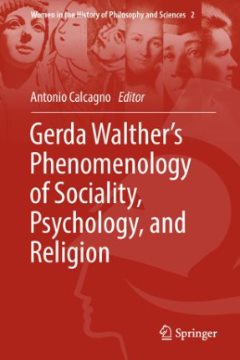What is the condition for the members of social communities to be "real" people according to Gerda Walther
pp. 101-111
Abstract
This chapter explores the notion of social community in the philosophy of Gerda Walther. I explore the essence of community to obtain the inner constitution of the community’s members, as they become a “social community.” This requires an understanding of the noematic and noetic sides of the lived experience of community to obtain the object of communal consciousness, and this understanding is identified by Walther as “we-intentionality.” The community, as we will find, comes to be based on the mental state of its members and the profound similarity and union between every member through shared experience. I analyze Walther’s understanding of community by considering the reason for its existence, in its passivity and activity. Ultimately, I demonstrate that, although community may be experienced internally, it may also present externally. In the case of the latter, empathy makes possible one’s grasping of the lived experience of community in the other, which is to be distinguished from the unified we of the interior experience of community as a oneness.
Publication details
Published in:
Calcagno Antonio (2018) Gerda Walther's phenomenology of sociality, psychology, and religion. Dordrecht, Springer.
Pages: 101-111
DOI: 10.1007/978-3-319-97592-4_8
Full citation:
Massa Manuela (2018) „What is the condition for the members of social communities to be "real" people according to Gerda Walther“, In: A. Calcagno (ed.), Gerda Walther's phenomenology of sociality, psychology, and religion, Dordrecht, Springer, 101–111.


